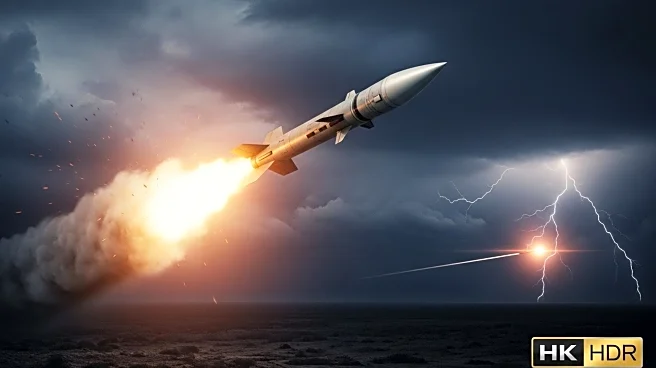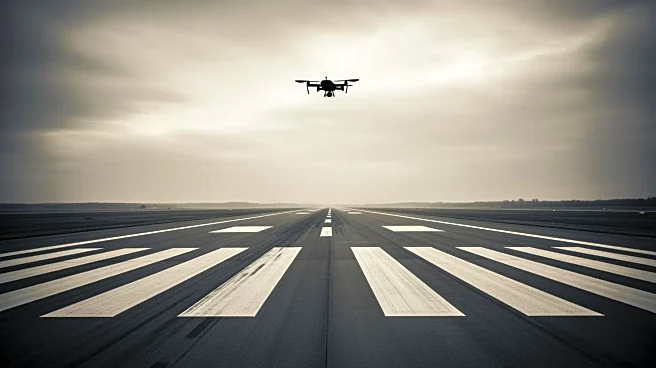What is the story about?
What's Happening?
Yemen's Houthi rebels have confirmed the death of their prime minister, Ahmed al-Rahawi, in an Israeli airstrike on the capital, Sanaa. The attack, which also resulted in the deaths and injuries of several ministers, occurred during a government workshop. The Houthis have vowed to retaliate against Israel, escalating the conflict further. The strike marks a significant blow to the Houthi leadership, as al-Rahawi was the most senior figure killed in the Israeli campaign.
Why It's Important?
The killing of al-Rahawi represents a major escalation in the conflict between Israel and the Houthis. The Houthis' attacks on Israeli cities and Red Sea shipping have disrupted regional stability and international trade. The airstrike could further destabilize Yemen, impacting regional security and international economic interests. The Houthis' vow for retaliation could lead to increased military confrontations, affecting regional alliances and power dynamics.
What's Next?
The Houthis may intensify their attacks on Israel, potentially leading to further military escalation. The appointment of a new prime minister could result in changes to the Houthis' political and military strategies. International stakeholders may increase their involvement to prevent further destabilization and address the humanitarian crisis in Yemen. Diplomatic efforts might be necessary to seek a resolution to the ongoing conflict.
Beyond the Headlines
The airstrike highlights the complex geopolitical dynamics in the Middle East, where proxy conflicts often involve multiple nations. The Houthis' alignment with Iran and their support for Hamas add layers to the conflict, influencing regional alliances and tensions. The humanitarian impact on Yemen, already suffering from a prolonged civil war, could worsen, necessitating increased international aid and intervention.














